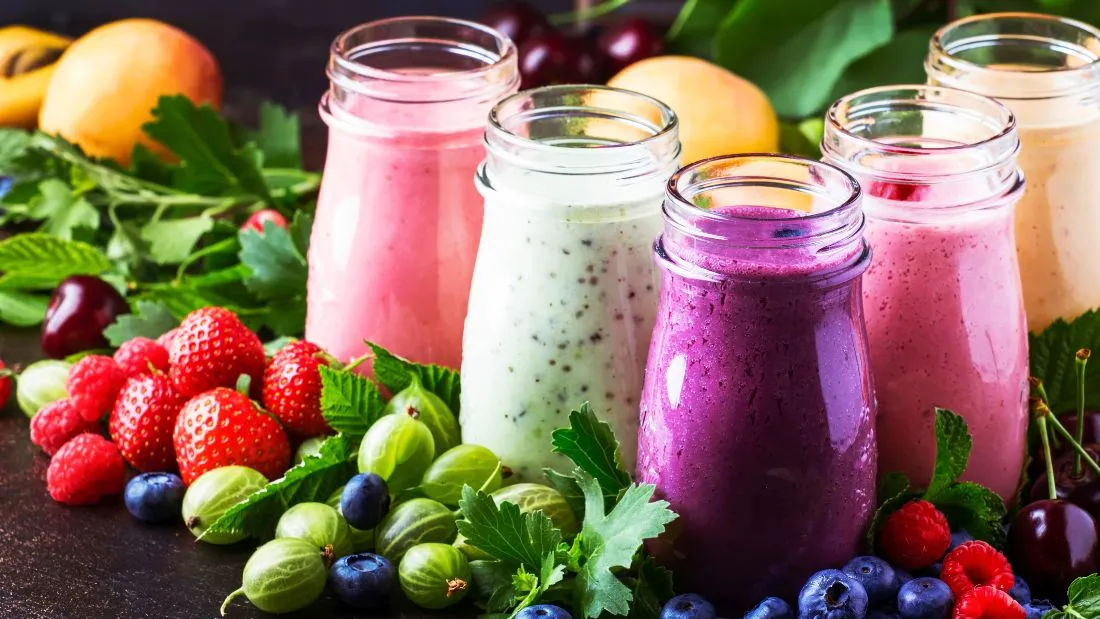Berries every day!

Packed with essential nutrients and health-protecting phytochemicals, berries have antioxidant and anti-inflammatory properties that protect your health and may help reduce the risk of several age-related conditions. “On average, people who eat more berries seem to live a little bit longer,” according to Eric Rimm, professor of epidemiology and nutrition at Harvard TH Chan School of Public Health.
Nutritional powerhouse
Low in calories, berries are packed with nutritious vitamins and minerals and contain more antioxidants than any other fruit. They provide varying amounts of potassium, manganese, vitamins C and K, and fibre. Strawberries provide the most vitamin C, with an 80-gram portion (around seven medium strawberries) meeting your entire daily needs.
Phyto means ‘plant’ in Greek and many of the benefits provided by berries are due to the phytochemicals they contain. These potent, plant-based compounds are part of their immune system and protect plants against bacterial, viral and fungal infections, UV radiation and environmental damage – and they can serve a similar purpose in our bodies.
Flavonoids, for example, are a group of phytochemicals found in berries with antioxidant and anti-inflammatory effects that can help lower blood pressure and cholesterol and may help reduce the risk of heart disease, diabetes, cancer, arthritis and neurodegenerative diseases.
A subclass of flavonoids, called anthocyanins, are responsible for the blue, purple and red colours in fruit and vegetables, including berries, grapes, red onions, black rice, aubergines, red cabbage and more. These pigments tend to be concentrated in the skins of fruit but berries that have brightly coloured flesh, such as strawberries, blackberries and raspberries, contain a lot more.
Antioxidant boost
Many of the health benefits associated with berries are attributed to the antioxidant and anti-inflammatory properties of anthocyanins. Over time, chronic inflammation can increase the risk of several diseases, including diabetes, heart disease and certain cancers. So, regularly eating berries may help protect you from these.
Researchers in the US examining the impacts of certain fruits on type 2 diabetes found that people eating three portions a week of blueberries had a 26 per cent lower risk of developing this disease, which affects over four million people in the UK. Even though berries are sweet, their sugar content is well-balanced by the fibre they contain, meaning that berries don’t cause sudden blood sugar spikes and so are a great food for people with diabetes.
Several studies suggest that the regular intake of anthocyanins can protect heart health and that blueberries, for example, may help reduce blood pressure and arterial stiffness. One meta-analysis of studies, including over two million people, found that a high intake of anthocyanins was linked to a 17 per cent lower risk of heart disease.
Another study gathered data from 93,600 women who, at ages 25 to 42, signed up for the US Nurses’ Health Study. After 18 years, they found that those who ate three or four portions of strawberries or blueberries a week were 34 per cent less likely to have suffered a heart attack than those eating them once a month or less.
Anthocyanins are just one group among a huge number of antioxidant phytochemicals that form a remarkable arsenal that may reduce the risk of cancer – primarily of the digestive system – as well as breast and to a lesser degree of liver, prostate, pancreas and lung cancers.
The evidence supporting flavonoids’ anti-cancer benefits is strong enough to have led to natural cancer treatments being developed which may be especially helpful when combined with chemotherapy.
Studies suggest that berries may also help lower the risk of dementia. The Dietary Approaches to Stop Hypertension (DASH) diet was originally designed to lower blood pressure but when researchers at Rush University in Chicago combined it with the Mediterranean diet to create the Mediterranean-DASH Intervention for Neurodegenerative Delay (MIND) diet, the results were impressive.
MIND how you go!
The MIND diet emphasises green leafy vegetables and berries – known to protect brain health. One study, following 960 older people for nearly five years, found those who ate the most brain-healthy foods, based on the MIND diet, had a slower rate of cognitive decline equivalent to being 7.5 years younger than those eating the least. A review of three other studies, including over 18,000 people and a meta-analysis including almost one quarter of a million participants, found those sticking most closely to the MIND diet had a 17 per cent lower risk of dementia. A further analysis of 16,000 women in the Nurses’ Health Study found a higher intake of blueberries and strawberries was linked with a 2.5-year slower rate of cognitive decline in older adults.
Digestive health
A healthy gut contains a diverse population of ‘good’ bacteria and has an intact lining that is not ‘leaky’. A large body of evidence shows that a plant-based diet is best for your gut health and that berries not only play a role in providing prebiotics – carbohydrates that help feed your healthy gut bacteria – but their beneficial antioxidants and anti-inflammatory compounds also protect your gut integrity.
Taken together, the anti-inflammatory, antioxidant and vasoprotective (veins or blood vessels) effects of berries coupled with their excellent nutrient content, make them ideal if not essential for healthy ageing. If you can, aim to eat a small handful of berries every day.
Store fresh berries in the fridge and don’t wash them until you are about to eat them. If there are two-for-one sales, consider buying extra packs to freeze, as freezing won’t destroy the nutrients and may even preserve some. If you’re travelling, freeze-dried berries are a good option. Sadly, cooked berries in jam, cakes or tarts, for example, don’t count as they contain too much fat or sugar.
Add berries to your breakfast cereal, yoghurt or smoothie, eat them fresh as a snack or part of a dessert or be adventurous and add them to salads, dips and salsas!




